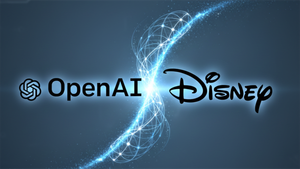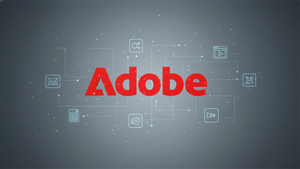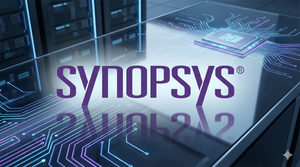Top 5 ETFs for Every Investor: From Semiconductors to Defense
![]()
Exchange-traded funds (ETFs) have the potential to be an excellent choice both for amateur investors eager to diversify a portfolio but without the experience or time to deal with the regular management of a large number of positions as well as seasoned investors trading actively to capitalize on advanced leveraged strategies. It's no wonder that these easy-to-use investment vehicles have ballooned in popularity in recent years.
Before investing in an ETF, though, it's essential to understand the way that these funds are structured and the costs associated with them. In many cases, the fees associated with investing in an ETF—known as the expense ratio—have been driven lower by fierce competition from multiple providers offering similar products. At the same time, some funds may be quite expensive and use highly advanced strategies best suited to specialist investors.
Given thousands of different ETFs are available for investment, each investor will need to gauge their own goals and interests before comparing similar funds and making a selection. Niche funds may appeal to particular investment goals but may also offer low assets under management (AUM) or trading volume levels, which can cause liquidity and cost concerns. Fortunately, many ETFs are generally a good bet for investors of all experience levels.
VanEck Semiconductor ETF: Capitalize on the Chip Craze
Semiconductor stocks have had a tremendous run in recent months, with two leaders—NVIDIA Corp. (NASDAQ: NVDA) and Taiwan Semiconductor Manufacturing Co. Ltd. (NYSE: TSM)—now among the ten largest companies in the world by market capitalization. Still, as NVIDIA has demonstrated with its recent share price decline, investing in individual chipmakers carries risks despite the extreme popularity of many of these firms.
The VanEck Semiconductor ETF (NASDAQ: SMH) provides a greater degree of diversification within this industry than most investors are likely to achieve by targeting individual firms. This fund tracks 25 leading U.S.-listed semiconductor makers and offers a balance between megacap, large-cap, and mid-cap companies as a way of controlling risk.
With an expense ratio of 0.35%, SMH is moderately priced. To be sure, there are less expensive alternatives, but many of these are broader information technology sector funds that do not provide the same targeted exposure to semiconductor firms. SMH also has strong liquidity based on large monthly trading volumes, so investors are not likely to face any barriers entering or exiting this fund.
iShares MSCI Global Gold Miners ETF: Combat Inflation Without Direct Gold Exposure
Gold is trading near an all-time high after reaching a record earlier this year, the likely result of lingering concerns about inflation, the potential for a recession, uncertainty about interest rates, and general hesitation about market volatility.
For some investors, physical gold is an ideal safe haven when faced with market turbulence. However, direct investments in gold also bring challenges including storage and maintenance, security, and liquidity. An arguably easier alternative in the ETF space is the iShares MSCI Global Gold Miners ETF (NASDAQ: RING).
RING does not offer direct exposure to physical gold, but rather tracks a basket of nearly 40 international gold mining companies as a proxy for the price of gold. This structure allows for diversification across dozens of different companies as well as the potential for dividend income.
RING's expense ratio is fairly high compared to many ETFs at 0.39%, but it remains lower than many other funds in the gold mining category. Another major benefit it enjoys over multiple other gold miner ETFs is its international focus. Gold mining is an industry spread out throughout the world and in both developed and emerging markets, and RING's holdings provide a healthy mix of each.
Global X Defense Tech ETF: Benefit From Increased Defense Spending
An unfortunate reality of increased geopolitical conflict in Ukraine and the Middle East is that many nations have accelerated the pace of growth of their defense spending. Global military spending for 2023 was $2.4 trillion, an increase of almost 7% over 2022.
In the niche category of defense technology funds, the Global X Defense Tech ETF (NYSEARCA: SHLD) stands out for its year-to-date returns above 31%. The fund is fairly focused, with fewer than 40 companies included, and it is limited to U.S. names.
Notably, SHLD is a smaller and less-liquid fund than some of the others in this list, with AUM of $522 million and a 1-month average trading volume in the 200,000s. It also has higher fees, with an expense ratio of 0.50%, and only about a year's track record since launch. Nonetheless, if current defense spending trends continue it seems likely that SHLD will provide strong returns.
Invesco S&P 500 Momentum ETF: Building on Current Trends
Investors not especially focused on a particular theme or sector but still wishing to capitalize on the latest momentum picks without actively managing their portfolios may turn to the Invesco S&P 500 Momentum ETF (NYSEARCA: SPMO).
SPMO holds a portfolio of 100 stocks from the S&P 500 that have a history of leading share price growth compared with other companies in the index. By targeting companies with strong returns on this scale—and focusing on the well-established companies making up the S&P 500—this ETF mitigates much of the risk involved with investing in a single momentum stock.
Still, due to the shifting nature of momentum stocks, this fund tends to draw investors looking to trade ETFs fairly actively, as opposed to hands-off investors looking to buy and hold. Fortunately, its low expense ratio of 0.13% makes active trading possible without becoming too costly.
Vanguard S&P 500 ETF: Inexpensive Exposure to Major Index
The S&P 500 is up more than 22% in the year leading up to September 5, and while this level of return is not necessarily consistent, the market does trend upward over the long term. This makes funds tracking the S&P 500 a stalwart for many investors interested in the ETF space.
Among S&P 500 ETFs, there has been a race to provide the most enticing expense ratio, as funds targeting this benchmark index are in many other respects essentially equal. The Vanguard S&P 500 ETF (NYSEARCA: VOO) is not as well-known as its rival SPDR S&P 500 ETF Trust (NYSEARCA: SPY), but it is quite a bit cheaper for investors. VOO has an expense ratio of 0.03%, while SPY's is three times that at 0.09%.
VOO has comparable AUM to SPY, but it does lag behind its rival in liquidity. Nonetheless, with a 1-month average trading volume of more than 5,000,000, VOO is not likely to give investors any liquidity concerns.
Theme or No Theme
A decision ETF investors must make is whether to focus on funds with a particular investing theme, or instead to target those that provide broad-based exposure to larger indices or portfolios. The funds above provide a mixture of each and, together, represent a number of different approaches to ETF investment.
More News
View More



Recent Quotes
View More
Quotes delayed at least 20 minutes.
By accessing this page, you agree to the Privacy Policy and Terms Of Service.